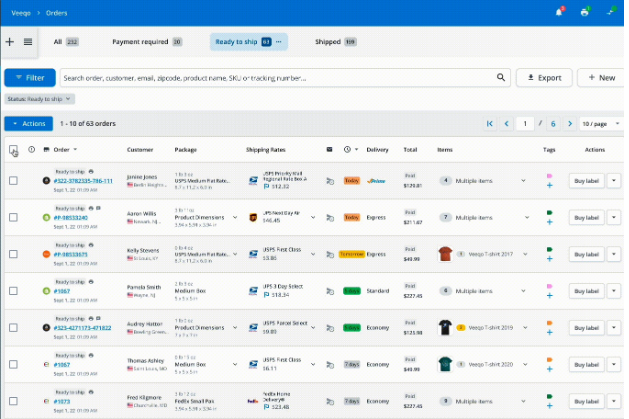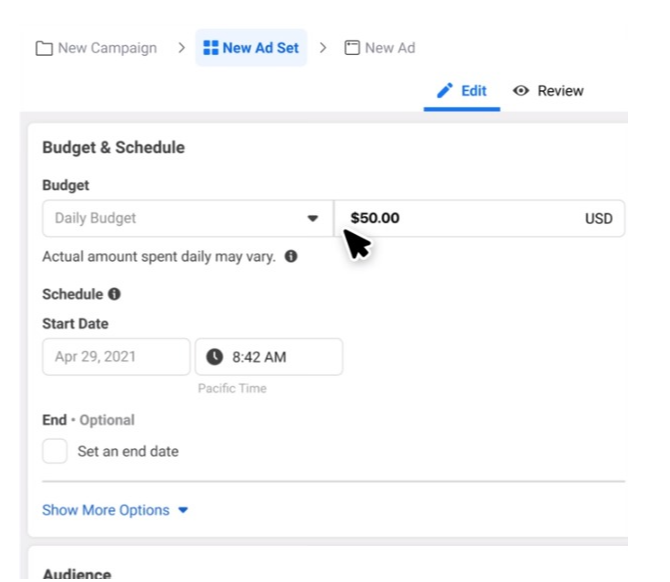- Tech Services

Concept Development
- Industry
- Emerging Tech
- Generative AI Hub
- Blog
- Contact Us

5 Cost-Cutting Tips For Your Ecommerce Business
In Lets Nurture
30
Dec. 22680
VIEWSIs your ecommerce business costing you more than you’re earning?
While the obvious solution can be to increase your sales, it also helps to look at where and how you can save costs.
Data shows that customer churn leads to retailers losing about $136 billion annually.
However, that’s not the only area in your ecommerce business where you could lose money.
Anything from manual workflows to inefficient methods to tackle and manage SKUs as an ecommerce business can cause your business to lose money needlessly.
Fortunately, there are ways to help your ecommerce business cut costs with the five tips below.
1. Calculate the expected shipping costs
Determining the shipping costs beforehand can help you price your ecommerce business’s products strategically.
It lets your customers stay within their budget and understand better what to expect.
Customers will likely stop buying from you if you surprise them with an expensive or unexpected shipping cost. It can ruin the customer experience and cause your business to lose buyers.
To learn how to calculate shipping costs for small businesses, you must factor in the following:
- Weight and dimensions
- Packaging
- Distance
- Speed
- Insurance
While you can manually calculate shipping costs, use reliable shipping software that can do the heavy lifting for you.
Many popular shipping software can automatically calculate the shipping costs based on the factors above.
For example, free shipping software Veeqo syncs your Etsy, Amazon, Shopify, and eBay orders and automatically selects the best shipping rate for each based on weight and size.
The software also lets you ship order batches in bulk and automatically selects low rates for each item, saving you time and money.

Calculating shipping costs helps you give accurate estimates to your customers. It removes surprise fees that often prevent buyers from continuing the purchase.
Knowing the shipping costs ahead lets you adjust your product’s pricing to get your business healthier margins.
2. Negotiate with your suppliers
Negotiate better terms with your suppliers when you can to reduce costs.
For instance, you can offer to purchase in bulk in exchange for discounted product item prices.
Establish a mutually beneficial relationship with suppliers to get discounts and save money.
You could get two to five percent discounts (or more) if you do.
You can even negotiate free shipping or freight costs if your orders reach a specific amount (also known as fixed price breaks).
For example, you could buy goods worth $2,000 and arrange with your supplier for the purchase to get a free shipping deal.
Getting free shipping for items worth a specific amount can help you reduce your ecommerce operating costs.
3. Know where you’re making great returns
If you don’t assess your marketing efforts, you could waste resources and lose money on ads, campaigns, content, promotions, etc.
Determine which of your ecommerce marketing initiatives are driving excellent returns to your business.
Identify your poor-performing marketing channels and efforts and improve or scrap them when necessary.
This way, you can focus your time, money, and other resources on marketing initiatives that give your business a significant Return on Investment (ROI).
Determine your returns from one marketing channel over the other.
For example, if your social media ads about your robust ETL testing automation tools get more clicks and conversions, consider focusing more of your efforts and budget on your social ads.
Social media ads are also easy to run with tools such as the Ads Manager for Facebook and Instagram.
You can create your ad, choose an objective, set a budget and schedule, define your audience, upload your creative assets, and publish.

Also, consider leveraging marketing strategies that don’t require a huge investment but could give you significant returns, such as email marketing and search engine optimization.
While not all marketing tactics might be free, at least they won’t cost you an arm and a leg before getting great ROI.
4. Reduce your product return rates
Your business can lose a lot of money when customers return faulty items or products that don’t meet their expectations.
After all, you’ve already spent money on labor and shipping costs, and you might incur more expenses to repair or replace damaged products.
The key is to reduce your product return rates to lower the expenses that come with returned items.
Consider doing the following to help you lower product returns.
- Give adequate information on your product pages. Include images showing your product from various angles to give customers a more accurate and reliable idea about your item. It helps ensure that your product meets your customer’s expectations.
- Include product videos to show how your products work or how customers can use them in real life. Provide a sizing or scale chart with measurement guides for measurable items, such as clothing, shoes, accessories, and furniture.
- Increase your return period to give customers more time to reconsider before returning their purchase.
While this tactic doesn’t always work, it can help customers feel less pressured to return items quickly and allow them more time to change their minds.
- Examine your sales data to identify the customer segments with the highest return rates. Use the data to isolate these customers in your marketing campaigns.
It allows you to learn which customer groups to avoid and the product types you shouldn’t market to specific customers to help lower return rates.
Many agencies for ecommerce businesses, such as a reliable online marketing company in New Jersey, can help you gather and analyze marketing and sales data to do this.
5. Consider outsourcing non core business processes
Outsourcing your non-critical business functions to professionals or third-party service providers can help you lower your operating costs.
How? By reducing your staff costs since you won’t need to hire full-time employees to handle specific tasks.
Outsourcing can also free your team from heavy workloads that impact their productivity and your company’s profitability.
Your teams can have more time to focus on your core business functions, such as your sales operations, without being bogged down by tedious and repetitive tasks.
Consider outsourcing the following processes and tasks:
- Bookkeeping
- Information Technology (IT)
- Human Resources (HR)
- Customer Service
- Payroll processing
- Graphic design
You can always start small by getting the services of reliable freelancers on platforms such as Upwork.

With the right strategy, outsourcing can be a cost-efficient solution to help your ecommerce business save money.
It can help you save infrastructure, software licensing, maintenance, facility, and personnel costs (among others).
Save your ecommerce business money with the right tactics
You can reduce many of your ecommerce business’s expenses if you know where to look and how to do it correctly.
Start with this guide’s tips to help optimize your marketing, sales, and business operations while lowering needless expenses.




